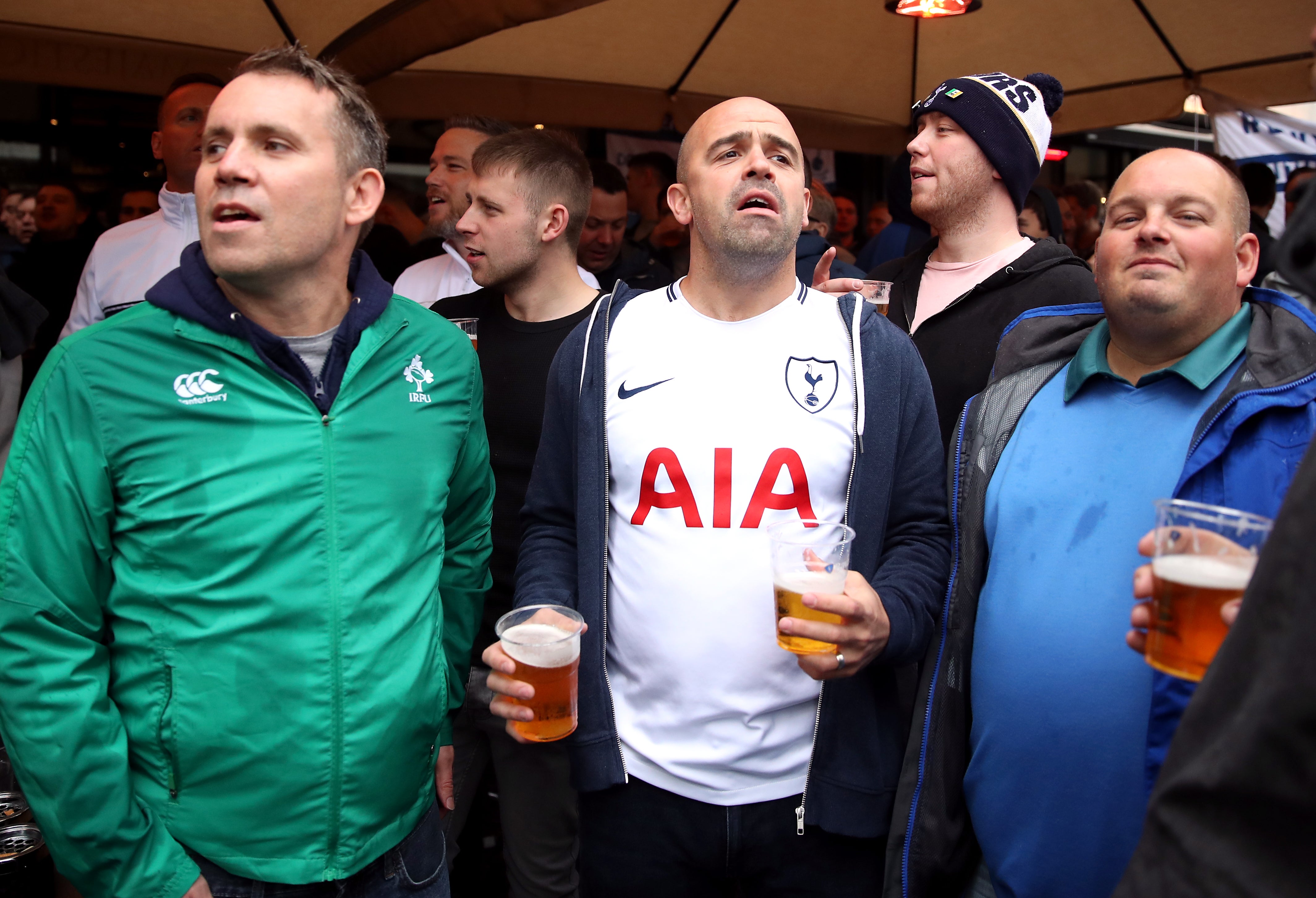Police warn against relaxing pitchside drinking laws at matches
The chair of the fan-led review, Tracey Crouch, is set to recommend a pilot programme

Your support helps us to tell the story
From reproductive rights to climate change to Big Tech, The Independent is on the ground when the story is developing. Whether it's investigating the financials of Elon Musk's pro-Trump PAC or producing our latest documentary, 'The A Word', which shines a light on the American women fighting for reproductive rights, we know how important it is to parse out the facts from the messaging.
At such a critical moment in US history, we need reporters on the ground. Your donation allows us to keep sending journalists to speak to both sides of the story.
The Independent is trusted by Americans across the entire political spectrum. And unlike many other quality news outlets, we choose not to lock Americans out of our reporting and analysis with paywalls. We believe quality journalism should be available to everyone, paid for by those who can afford it.
Your support makes all the difference.The continued high level of incidents being reported to the police at football matches shows now is not the right time to consider letting fans drink in sight of the pitch, the UK’s football policing lead has said.
Data released by the Home Office on Thursday morning showed incidents were reported at 37 per cent of the matches played in England and Wales in the 2020/21 season where spectators were allowed.
That was slightly down on the 2019/20 season (40 per cent) but an increase on 2018/19 (33 per cent), the last full season not affected by the coronavirus pandemic.
The data, which covered the period between 1 August 2020 and 31 July 2021, comes as a fan-led review chaired by Conservative MP Tracey Crouch is set to recommend a pilot allowing supporters at matches in League Two and the National League to drink in the stand or in their seat.
Chief Constable Mark Roberts of Cheshire Police, the National Police Chiefs’ Council’s football lead, said the figures indicated an ongoing problem with disorder at football and described the proposed pilot as “unnecessary”.
“This trend shows now is not the time to be having discussions about making big changes at football grounds, such as allowing fans to drink alcohol in their seats,” he said.
“It is evident there is a link between alcohol and many of these offences and one of the principal safety measures introduced by the Taylor report has already been unpicked by reintroducing standing areas.
“Allowing drinking in seats would fuel disorderly behaviour and is unnecessary as spectators are allowed to drink on concourses – to make this change would be irresponsible.
“Whenever there is a high-profile incident of disorder there are calls to clamp down and tackle the issues, which means taking sensible decisions about policy and legislation.”
Incidents were reported at 79 of the 212 matches not played entirely behind closed doors in the 2020/21 season, the Home Office report said.
Hate crime incidents were reported at four matches, the data showed.
The report also found there were 116 football-related arrests during the period, including 92 related to England matches.
Ninety of those were linked to matches played by England at Euro 2020. The highest proportion of arrests – 43 per cent – related to the final against Italy (39), 31 per cent to the group game against Scotland (28) and 20 per cent to the semi-final against Denmark (18).
The disorder at the Wembley final has been the subject of a Uefa investigation. The Football Association is set to learn the outcome of that investigation within 24 hours of the personal hearing it has requested, which is due to take place on Monday.
England manager Gareth Southgate has previously said he fears a stadium ban could be imposed.
Nearly two-thirds of the 116 arrests (73) occurred outside grounds, compared to 45 per cent in 2019-20 and 41 per cent in 2018-19.
The number of banning orders continued to trend downwards. The data showed 1,359 were in force as of 1 August 2021, compared to 1,621 the previous year and 1,771 the year before that.
There were 208 new banning orders issued in 2020/21, according to the report.
The government said earlier this year it intends to extend banning orders to cover online abuse.
England players Marcus Rashford, Jadon Sancho and Bukayo Saka were all targeted by racist abuse online after they missed penalties in the final shoot-out defeat to Italy.
Chief Constable Roberts said: “We continue to work very closely with social media platforms to identify offenders who have posted hate-filled messages, and police forces have secured three prosecutions following the abhorrent abuse our England players faced following the final.
“Anyone who commits an offence either outside or inside a football ground can also expect to face the consequences of their actions. This behaviour will not be tolerated and is not something that the real fans attending football matches should have to witness.”